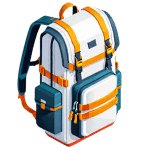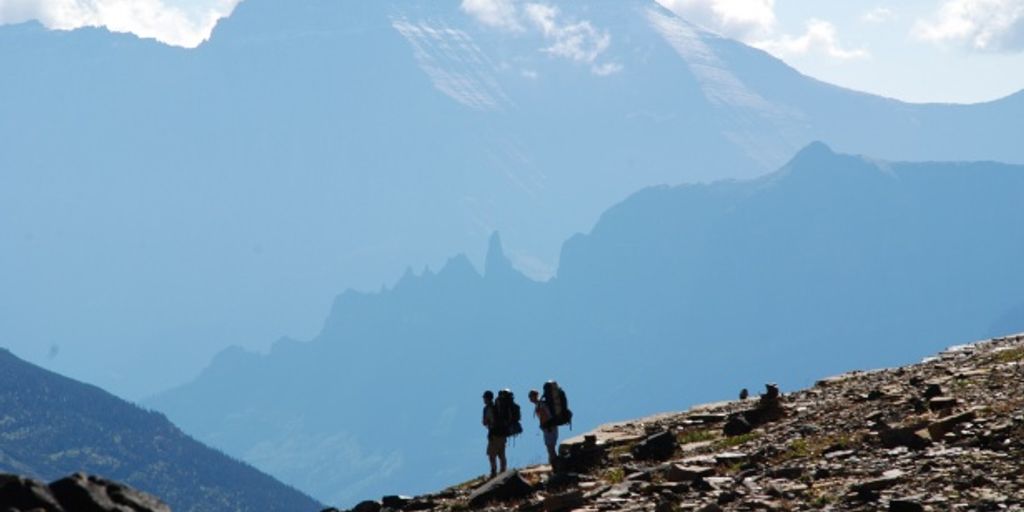Backpacking on a budget doesn't mean you have to miss out on amazing experiences. With the right tips and tricks, you can explore the world without spending a fortune. Here are some top budget backpacking tips to help thrifty travelers make the most of their adventures.
Key Takeaways
- Pack light to avoid extra baggage fees and make travel easier.
- Stay in budget-friendly accommodations like hostels or campgrounds.
- Interact with locals to get insider tips and make new friends.
- Cook your own meals to save money on food.
- Travel during the shoulder season to avoid high prices and crowds.
1. Minimalist Packing
Packing light can save you money and make your travels easier. Stick to carry-on luggage to avoid checked baggage fees. Choose versatile clothing that works for different occasions and weather. Bring only essential gadgets to avoid buying them at higher prices on the go. Plan to do laundry instead of packing too much.
- Avoid Checked Bag Fees: Stick to carry-on luggage to avoid checked baggage fees on airlines.
- Versatile Clothing: Pack clothes that are versatile and appropriate for various occasions and climates.
- Essential Gadgets: Bring essential gadgets and accessories to avoid buying them at a higher price on the go.
- Laundry Options: Pack light and plan to do laundry, which is often more economical than paying extra for baggage.
Packing light is not just about saving money; it's about making your journey smoother and more enjoyable. Embrace the freedom of having less to carry and more room for adventure.
2. Budget Accommodations
Finding a place to stay without breaking the bank is easier than you think. Consider staying in hostels, guesthouses, or budget hotels. These options are not only affordable but also offer a chance to meet fellow travelers. Home-sharing platforms and vacation rentals can provide unique experiences at reasonable costs. For the more adventurous, camping or backpacking are excellent budget-friendly choices.
- Hostels: Great for meeting new people and saving money.
- Guesthouses: Often cheaper than hotels and offer a cozy atmosphere.
- Budget Hotels: Look for deals in less touristy areas.
Master the wilderness, unleash your confidence! Learn essential backpacking skills to boost outdoor confidence and financial security. Subscribe now for transformative adventures.
3. Local Interaction
Engaging with locals can be one of the most rewarding parts of your trip. Making a local friend is like finding gold. They can show you the best spots, introduce you to others, and give you a real taste of local life. It's always good to have friends!
Here are some tips to help you connect with locals:
- Attend local events and festivals: These are great places to meet people and learn about the culture.
- Stay in homestays: This gives you a chance to live with a local family and see their daily life up close.
- Use online travel communities: These can provide valuable tips and recommendations from experienced travelers.
Finding joy in simple things and connecting with people can make your travel experience richer and more memorable. Don't be afraid to reach out and make new friends along the way.
4. Self-Catering
Cooking your own meals while traveling can save you a lot of money. Staying in hostels with shared kitchen facilities is a great way to meet other travelers and learn new recipes. If you prefer more privacy, consider renting an Airbnb with a kitchen. Though it might cost more upfront, the savings from not eating out will balance it out.
You don't have to eat out for every meal. Make breakfast and dinner at your accommodation and treat yourself to a budget-friendly lunch out. This way, eating out becomes a special treat rather than a daily expense.
Shopping at local supermarkets not only saves money but also gives you a taste of local flavors. If you stay in places with kitchens, you can even share the cost of groceries and cooking with new friends you meet along the way.
5. Shoulder Season Travel
Traveling during the shoulder season, those in-between months before or after high season, is a smart move for budget backpackers. Costs for accommodation, transport, and food are significantly lower during this time. You can save anywhere from 2 to 5 times compared to high season prices. Plus, the weather is usually still decent, making it a great time to explore without the high costs.
- Lower prices on flights and hotels
- Fewer crowds at popular attractions
- Enjoyable weather without the extreme heat or cold
By planning your backpacking trip during the shoulder season, you can enjoy the same activities as high season travelers but at a fraction of the cost. Think jeans and t-shirt weather, perfect for outdoor adventures without breaking the bank.
6. Affordable Accommodation
Finding a place to stay without breaking the bank is easier than you might think. Consider staying in hostels, guesthouses, or budget hotels. These options not only save money but also offer a chance to meet fellow travelers. Home-sharing platforms and vacation rentals can provide unique experiences at reasonable costs. For the more adventurous, camping or backpacking can be excellent budget-friendly choices.
- Hostels: Great for meeting new people and often the cheapest option.
- Guesthouses: A bit more private but still affordable.
- Budget Hotels: Look for deals in less touristy areas.
- Home-sharing: Platforms like Airbnb can offer good value.
- Camping: Perfect for nature lovers and very cost-effective.
Sometimes, the best experiences come from the simplest accommodations. Embrace the adventure and enjoy the journey!
7. Saving on Transportation
Book flights and train tickets well in advance to secure discounted fares. Explore budget airlines and alternative transportation options like buses or trains. Maximize the use of public transportation at your destination to save money and experience local commuting.
Sure, we’ve already mentioned traveling off-peak, but that’s not the only way to save money on your transport. For one thing, you don’t always have to fly. In many places, getting a train, bus, or even boat to your next location is cheaper. This means that traveling times may be longer, but saving some money is worth it.
Packing effectively can save you money and hassle:
- Avoid Checked Bag Fees: Stick to carry-on luggage to avoid checked baggage fees on airlines.
- Versatile Clothing: Pack clothes that are versatile and appropriate for various occasions and climates.
- Essential Gadgets: Bring essential gadgets and accessories to avoid buying them at a higher price on the go.
- Laundry Options: Pack light and plan to do laundry, which is often more economical than paying extra for baggage.
Plus your accommodation costs can be reduced as often cheaper deals can be negotiated for longer stays. Also you won’t be wasting valuable time and money racing from one place to another. Transport can be one of the most expensive parts of a travel budget so the less you move around, the more you save!
8. Meal Planning
Meal planning is a game-changer for budget backpackers. By planning your meals ahead, you can save a lot of money and still enjoy delicious food. Cooking your own meals is often cheaper than eating out, and it gives you the chance to try local ingredients.
- Choose accommodations with kitchen facilities.
- Shop at local markets for fresh and affordable produce.
- Prepare simple meals that require minimal ingredients.
When you plan your meals, you not only save money but also get to experience the local culture in a unique way. It's a great way to make your trip more memorable.
Remember, meal planning and cooking on the trail can be fun and rewarding. It’s all about being creative and making the most of what you have.
9. Embracing Free Activities
Exploring new places doesn't have to break the bank. There are plenty of free activities that can make your trip memorable without costing a dime. Here are some ideas to get you started:
- Visit free museums and galleries. Many cities offer free entry to their cultural sites on certain days.
- Take a hike or explore public parks. Nature is often the best playground and it's free!
- Join free walking tours. These tours are a great way to learn about the city from a local's perspective.
- Attend local festivals and events. These can provide a unique glimpse into the local culture.
- Watch the sunset. Sometimes, the simplest activities are the most rewarding.
Embracing free activities not only saves money but also allows you to experience the local culture in a more authentic way. So, get out there and explore without worrying about your wallet!
10. Managing Finances
The Art of Budget Planning
Effective budget planning is the cornerstone of affordable travel. Here’s how to master it:
- Assess Your Finances: Start by determining how much you can comfortably spend on your trip.
- Research Costs: Look into typical costs in your destination – accommodation, food, transport, and activities.
- Categorize Expenses: Break down your budget into categories like flights, lodging, meals, sightseeing, and emergencies.
Tracking Daily Spending
Keep a constant record of what you are spending on a daily basis so you know if you have stretched too far. Make your budget a realistic one, and remember that some days you will spend more and other days less, depending on your activities. If it averages out over a week to your limit, then you are on track to being a successful budget traveler.
Preparing for Unexpected Expenses
Always have a buffer for unexpected costs. Emergencies can happen, and it's best to be prepared. Set aside a small portion of your budget for these unforeseen events.
Planning ahead and keeping track of your finances can make your trip stress-free and enjoyable. Stick to your budget, but also allow some flexibility for spontaneous fun.
Conclusion
Backpacking on a budget doesn't mean you have to miss out on amazing experiences. With a bit of planning, creativity, and an open mind, you can explore the world without breaking the bank. From finding affordable places to stay to cooking your own meals and making friends along the way, there are countless ways to save money and still have a blast. So pack your bags, grab your map, and get ready for an adventure of a lifetime. Happy travels!
Frequently Asked Questions
What is minimalist packing?
Minimalist packing means taking only what you need. This helps avoid extra baggage fees and makes your travel easier.
How can I find budget accommodations?
You can stay in hostels, budget hotels, or even camp if you're in a nature-friendly place. These options are usually cheaper than regular hotels.
Why is local interaction important?
Talking to locals and other travelers can give you tips and shared experiences that make your trip more enjoyable and affordable.
What does self-catering mean?
Self-catering means cooking your own meals. You can use hostel kitchens or buy food from local markets to save money on eating out.
What is shoulder season travel?
Traveling during the shoulder season means going during the time between peak and off-peak seasons. It's usually cheaper and less crowded.
How can I save on transportation?
Look for discounts, use public transportation, or even walk or bike when possible. These options can save you a lot of money.
What are free activities?
Free activities are things you can do without spending money, like hiking, visiting parks, or exploring local landmarks.
How do I manage my finances while traveling?
Keep track of your spending, use a budget, and try to stick to it. This will help you avoid running out of money during your trip.


